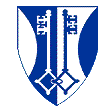|
Student
Course Load
The commonest course and credit permutations are detailed in the
chart. If you wish to offer
an alternative permutation, you should contact
the Liberal Arts Programme office. You are advised that your academic
programme should carry a minimum of nine units of credit, and a
normal maximum of fifteen units of credit. You should note that,
in addition to the permutations below, students have the opportunity
to earn one extra unit of credit if they successfully complete the
St. Clare's Senior Seminar course.
The
Senior Seminar Series
The St. Clare's Seminar Series has been devised as a forum for sustained
academic reflection for our undergraduate and other senior students.
The Senior Seminar Series offers students an opportunity to discuss
a range of stimulating issues and ideas as well as a chance to interact
with scholars from Oxford University and other renowned academic
institutions.
There are two
elements to the Series: the Senior Seminar Series offers students
an opportunity to discuss a range of philosophical issues and ideas,
as well as a chance to interact with scholars from Oxford University
and other renowned academic institutions. There are six Senior seminars.
Each semester the Series is linked by a common theme which will
be considered from a variety of disciplinary perspectives - Art,
Religion, Literary Studies, Philosophy, Politics and the social
sciences.
The Inquiry
Seminar Series works along the same principle, but is focused on
international themes and events. There are three Inquiry seminars.
Students will
receive three units of credit if they fulfil the following conditions:
full attendance at all nine of the seminars; maintaining a written
record of each seminar detailing the main points of discussion,
as well as the student's own responses and ideas. The Seminar Series
should normally be taken in addition to the regular course load,
and not as an alternative to a Core or Tutorial course. Take a look
at the current series. Top
Independent
Study Projects
An Independent Study Project is a good option for a student who
wishes to pursue study, or fulfill a degree requirement, in an area
not offered by St. Clare's. However, careful advance planning is
necessary. Before departure you must get approval from your home
institution; you must ensure that an approved faculty sponsor will
assume responsibility for directing and evaluating the project,
and you must ensure that there will be sufficient relevant resources
at St. Clare's to conduct the project. There will be no teaching
support at St. Clare's for these projects. At the end of the semester
details of the Independent Study Project will appear on the transcript,
but the award of credit is entirely at the discretion of your home
institution. Top
Internships
International work experience challenges your personal interests
and horizons. It also enables you to test your intended career field.
St. Clare's can arrange a variety of internships, all of which provide
many valuable opportunities for students.
If you wish
to pursue an internship for credit you must secure official approval
from your home institution before coming to St. Clare's. Furthermore,
details of your proposed internship should be sent to St. Clare's
at least eight weeks prior to your arrival. Please
note that students are expected to devote the equivalent of one
academic day per week to the internship, that there is no teaching
support for internships, and that students will receive no payment.
Students will receive full reports on their internship at the end
of the semester. Academic credit for internships is entirely at
the discretion of your home institution. Contact
the Liberal Arts Programme office for more details. Top
Actitivies
Programme
We encourage all students to get involved in activities beyond the
classroom which will develop and enhance their overall experience
of Oxford. Most students participate in St. Clare's Activities
Programme, which offers a wide range of opportunities for service
and other activities, both creative and sporting. There is no credit
granted for Activities undertaken.
Course/credit permutations
| Core
Courses |
Tutorial
or
Language Course |
Independent
Study Project
or Internship |
Total
Credits
Per Semester |
| 3 credits
|
3 credits
|
3 credits
|
Credits |
3
3
3
3
4
4
4
5 |
-
-
1
1
-
1
-
- |
-
1
-
1
-
-
1
- |
9
12
12
15
12
15
15
15 |
| Senior
Seminar Series |
1 |
Dropping
or adding a course
The first teaching week of the semester is Drop/Add Week and no
courses may be added after this time, unless specifically requested
by the home institution. After the first week you may still withdraw
from a course until the given date (three weeks after the start
of the semester). After this given date you cannot withdraw from
a course and, if you cease to attend, the course will be recorded
on the transcript as a Fail grade.
If you wish
to drop/add a course, you must submit a written request to do so
to the Liberal Arts Programme Assistant Director before the end
of the first teaching week of the semester. Only a course that is
running that semester, that has already been listed on your application
form, that has the space to accommodate you, and fits your existing
timetable can be added to your programme. Top
Pass/Fail
option
Students on the programme in good academic standing (with a grade
point average of at least 2.8) may opt to take some courses on a
pass/fail basis subject to the following regulations:
- They inform
the Assistant Director in writing before the end of drop/add week
(the first week of classes).
- No pass/fail
courses are allowed within the student's major field of study.
- A student
who opts for a pass/fail unofficially will fail the course in
question.
- To secure
a 'pass' on a pass/fail course, a student must earn at least the
equivalent of a grade C in the course in question.
- Major or
Minor pre-requisites may not be taken on a pass/fail basis.
- Students
who opt for a pass/fail must satisfy all the requirements of that
course (in the same way as if they were to be awarded a regular
grade).
- Students
are also advised that they must satisfy all regulations pertaining
to the pass/fail option in their home institution.
Auditing
a course
If you wish to pursue a course without earning academic credit,
you may 'audit' a course if space permits your attendance. Please
note that neither examinations nor papers will be graded, and that
registered students for the course in question have automatic priority.
Top
Workload
and requirements
The workload for each course (Core and Tutorial) together with the
relevant aims, requirements and methods, is detailed in the Long
Descriptions (syllabi). These descriptions are distributed during
the Course Registration Day, and you can also request them in advance
from the Liberal Arts
office or your Study Abroad office.
Generally speaking,
each course (Core and Tutorial) will require three assessable pieces
of work during the semester. Requirements may vary, and in one course
three papers may have to be completed (one being an exam paper),
in another three tests might be given, or a combination of these
methods of assessment may be used.
Although the
workload will vary a little from course to course and from week
to week, you should expect to do the equivalent of a day's work
for each course. This would include class or tutorial sessions (of
between one and three hours), in addition to an average preparation
and reading time of between three and five hours for each course
each week. Top
|


